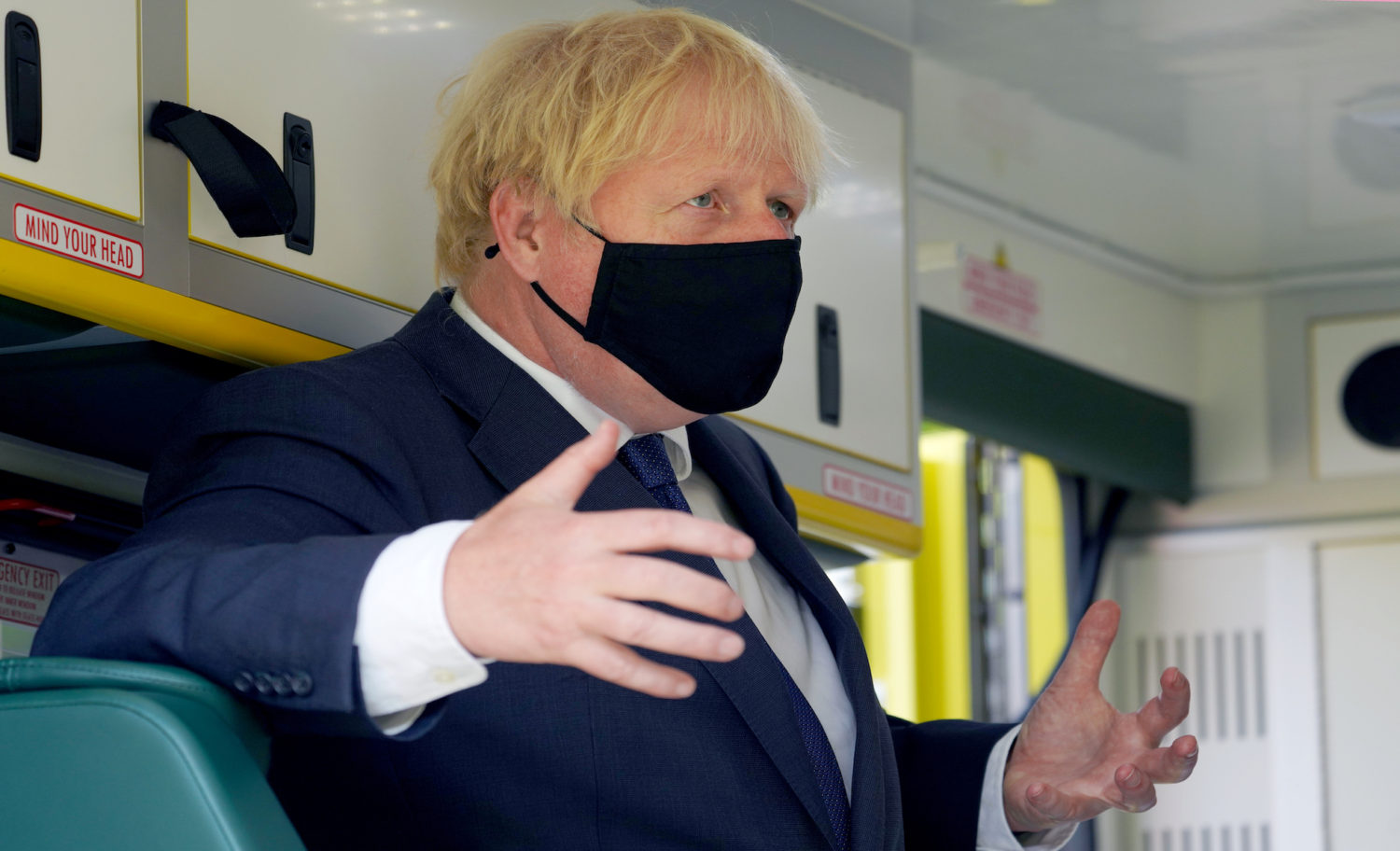The adults in the room
Can the UK’s leadership vacuum be filled? Glen O’Hara takes a look.
Britain seems adrift. Prime minister Boris Johnson is a diminished figure, seemingly uncertain which route to take. As the coronavirus crisis continues to unfold, all the bounce which some voters have always liked about him has slowly leaked out of the Boris balloon.
The prime minister has to some extent been unlucky. His leadership style – sloganise, delegate, disappear – is not suited to the present moment. For one thing, voters want to hear from their leader. Appearances in or broadcasts from Downing Street, no less than televised addresses from the monarch, fulfil a deep psychological need to see that someone, anyone, is in charge.
Voters sympathised when Johnson got ill: it could have happened to anyone, although his foolish talk of shaking hospital patients’ hands did him few favours. But there is no doubt that he has looked a shrunken character since his return to frontline politics. Many Covid-19 patients are reporting longlasting effects from the disease, and perhaps he is too.
Britain’s leadership crisis is a much wider and deeper phenomenon than one man’s difficulties, and indeed leading itself has become progressively more difficult. On one level, the problem seems rhetorical. We used to think that ‘leadership’ looked like heroism. A setpiece speech, a big policy unveiling, a forceful attack on rivals: these are the mechanics of heroic biography and political fantasies such as The West Wing.
That aesthetic has waned in recent years. Gordon Brown at his tub-thumping best, or even David Cameron with his everyman act at the lectern, were probably the last two politicians who could get anywhere like that.
Now, New Zealand prime minister Jacinda Ardern’s talk of dancing at the news of Covid-19’s retreat, her empathy, her quieter approach, seem like the hallmarks of a more conversational era. All of a sudden, far fewer voters seem to welcome the verbal assaults launched by Donald Trump – or the rather self-conscious parody of a speech from Johnson.
In reality, these trends have always waxed and waned. Franklin Roosevelt deployed fireside chats as well as the pulpit of the presidency; Clement Attlee often seemed as if he was making a virtue of saying very little indeed. The image of mid-to-late 20th century grandiloquence can be questioned. Not everyone was a John F Kennedy or a Tony Blair, evoking a ‘new generation’ or a ‘young country’.
It is too simple to say that one era of leadership has been replaced by another. Ardern might be garnering rave reviews for her intimate style, but Australia’s prime minister, Scott Morrison, has also seen his approval ratings rise. The combative and conservative Morrison is nothing like Ardern. What do the two leaders really have in common? Their governments have crushed the virus – unlike Britain.
Winston Churchill, so central to public discourse over the last few weeks, is remembered as a grand and forbidding speaker. But he spoke in light and shade, even in the first vital weeks of his premiership. Consider Churchill’s great ‘fight on the beaches’ speech to the House of Commons, delivered on 4 June 1940. The prime minister spoke in grave tones, and admitted that there was at least the possibility of defeat. As professor Richard Toye of the University of Exeter has recently put it: “He did not attempt to win easy popularity by providing false hope.”
Now that most of the world is in a real crisis once again, faced with a deadly virus and yet to be equipped with cure or vaccine, these same abilities are needed again: to speak frankly but not without hope, credibly but encouragingly, memorably but without too much obvious artifice.
There is also the need to get hands dirty and brains engaged, and it is here where the problems of the British state and with this government become even more obvious and serious. It is all too clear that Johnson is not a details man. In normal times, that might not matter: it might even endear him to many voters bored of technocrats and managers. But at the moment, it is a huge handicap, and it leaves him open to attack by an able, hard-working and intelligent opponent. This is exactly what he faces in Labour’s new leader, Keir Starmer.
The political historian Steven Fielding has recently termed politics successfully redefined in this way as the ‘populism of competence’. Harold Wilson turned such an approach to his advantage when he, as a trained statistician and economist, ran up against the assumed ease and superiority of Alec Douglas-Home and a Conservative government the public increasingly saw as old-fashioned, aristocratic and out-of-touch.
Labour’s recent rise in the polls is partly a reaction to the government’s apparent lack of grip, but it is also about the air of focus and competence projected by Starmer. He might sometimes seem a little bit boring – though when his mind is made up it stays made up, as Rebecca Long Bailey has found to her cost. But in the policy sphere, he proceeds meticulously. He chooses his words. He focuses on what the government is doing wrong, and he maintains at least the plausible fiction of standing ready to help the government when it does things right.
It is this sense of a real adult in the room that is endearing him to voters: 45 per cent of voters recently told YouGov that they thought Starmer was ‘competent’ (41 per cent thought the same of Johnson). It is one key element pushing up his overall favourability numbers.
There is still more to the contrast than Starmer’s own style. Populism is in fact in some trouble everywhere across the developed world. It has always been an exaggeration to see so-called ‘populist’ leaders entrenched at the head of a blue-collar revolt against social liberalism. Such trends ebb and flow.
We have seen this before, in different guises: in the early 1980s, ‘Reagan Democrats’ and Margaret Thatcher’s famous C2 voters saw off the Democrats and Labour with ease. It took both parties a long time to come back – but come back they did.
Many of Trump’s 2016 voters were rich Americans and white suburbanites. He could not have won without them, just as Johnson could never have won without affluent remainers in the south of England. If they flee from dither, incompetence and incoherence, then the new conservatism that seemed so forbidding just a few months ago might come to seem like a passing fad.
Trump’s polling numbers have not risen since he began to play the law and order card and mobilise what he sees as the ‘silent majority’ against ‘anarchists and looters’ – quite the opposite, in fact. At the end of March, Trump’s average approval on the polling website FiveThirtyEight stood at -4.9. At the time of writing, it has slumped to -14.5.
He will find it much more difficult to blame everything on leftist agitators and misguided college students than Richard Nixon did in 1968. Nixon was running against a party whose outgoing president was seen to have already failed. Trump is the president on whose watch everything appears to be on fire. He can still win in November, but his administration emits little sense of plan or promise.
The Conservatives appear to think similarly; that they can divert attention to matters of commemoration and national identity. In a crisis as acute as this one – and remember, it will be added to in the autumn by the rush to seal (or walk away from) a Brexit deal – this likely will not wash.
Questions of identity and belonging – race, nation, sexuality – are in fact running strongly in liberals’ favour at the moment across the UK, in England as well as in the country’s other constituent nations: there will in the medium term be little shelter in attempting to deflect questions of life and death, competence and incompetence, grip or fumble, onto those issues.
That said, it does not look quite like we are at a political turning point yet. It is important to remember that Labour has not just been poisoning its own reputation for the last five years. It has been in structural retreat since Michael Howard took the Conservatives into (brief) polling leads in 2004, and certainly since the 2005 general election.
The Iraq War; the expenses scandal; the battle between the two Milibands; the muddle between the two Eds; the civil war under Jeremy Corbyn: all have inflicted terrible damage on the public’s perception of the Labour party. YouGov may well tell us that 45 per cent think Starmer is competent, but only 23 per cent say the same of Labour as a whole.
The politics of acute crisis is unwinding a little and returning to normal, but that ‘normal’ has still left Labour out in the cold for a decade now. It has a long way still to go.
Image credit: Number 10/Flickr

